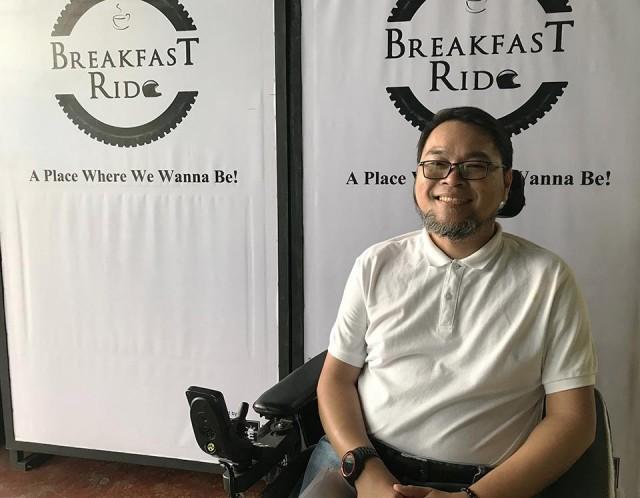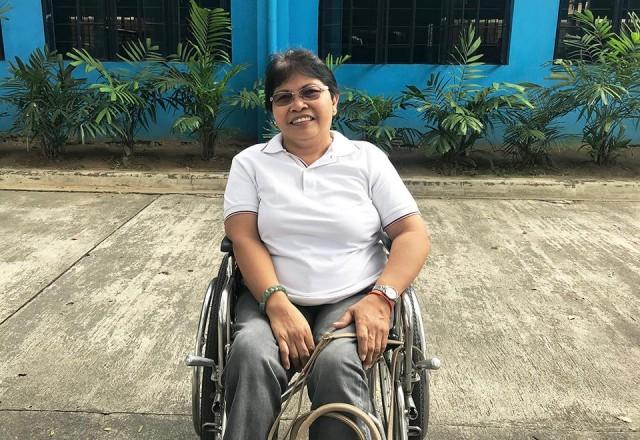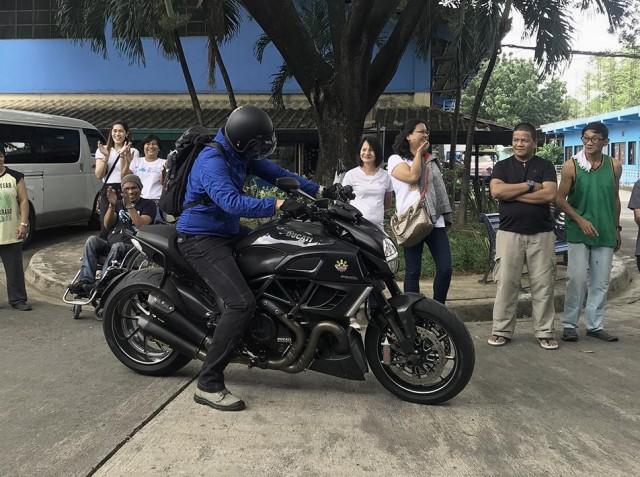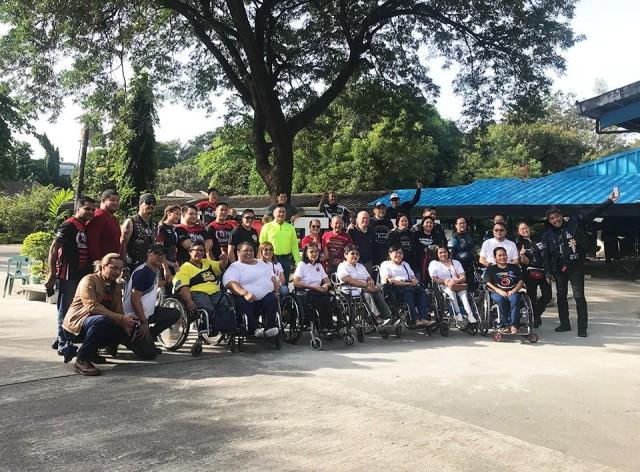This NGO advocates for PWDs to have better access in transportation, education, employment and tourism
Tahanang Walang Hagdanan (TWH) is at the forefront to fight for the rights of Persons with Disabilities (PWDs) for them to have better accessibility and inclusion for a "barrier-free" community in the Philippines.
At the Bikers Breakfast Ride event on Sunday, TWH shed the spotlight on Access 2020, an advocacy and awareness project that started in 2011.
Ramon Apilado, Public Relations and Fundraising Manager of TWH, told GMA News Online describes Access 2020 as a movement that aims to give PWDs the right accessibility to (1) transportation, (2) education, (3) tourism, and (4) employment.
Despite earning diplomas in college, most PWDs still have a hard time looking for jobs because of there are barriers hindering them to function trouble-free in workplaces and establishments.
Simple things for non-PWDs, such as carpeting, rest rooms, or even just space, are actually important matters.
"Hindi sila makapasok-pasok ng trabaho because of the inaccesibilities, workplace wise. Pagdating sa CR, hindi siya accessible. So paano kami magsi-CR kung nagwo-work kami doon," Apilado explained.
"Also the workplace itself: Kung makapal 'yong carpeting niya or wala siyang elevator or rampa; o 'yong table hindi makapasok ang wheelchair those are inaccesibility [issues] ng mga working space natin sa government or sa private sector," he added.

Apilado said the government should have a sterner implementation of Batas Pambansa Bilang 344 which is the Accessibility Law. It's "an act to enhance the mobility of disabled persons by requiring certain buildings, institutions and establishments and public utilities to install facilities and other devices."
Virgie Rabino of National Council of Disability Affairs said barriers can be removed by giving PWDs painless accessibilities and responsible accommodation and support services.
TWH Executive Vice President and COO Lita Evangelista said given the transportation problem and inaccessibility for PWDs, TWH temporarily prefers to partner with companies and hire PWD employees who can do work from the TWH compound in Cainta, Rizal.
"Alam mo naman ‘yong transportation problem natin tapos grabe ‘yong traffic. Saan ka titira doon?" she said. "Baka ‘yong kikitain mo gagamitin mo lang sa pang-upa ng bahay, sa taxi, pero pag andito ka talagang magiging maluwag sayo 'di mo na kailangan pumunta kung saan saan."

Apilado said having them work in TWH is the temporary solution they can give to PWDs to give them access to employment, but their long term goal is to have a PWD barrier-free community so they can work outside of TWH one day.
Their vision when they built the advocacy in 2011 is to have it implemented in 2020.
Although there are a lot of improvements that are still needed to be done to have a barrier-free community for PWDs, Apilado said the Philippines is slowly leveling up when it comes to accessibility.
TWH President Felix Gonzales said TWH is currently the biggest provider of employment to PWDs, with 70% of their 300 to 350 workers being PWDs.
Their PWD workers create wood works, craft customized wheelchairs for their fellow PWDs, as well as make make tables and chairs for public schools.
Evangelista mentioned they also have a project with Unilab, their workers do the tertiary packaging for some of its medicines. They also have employees who work in TWH under UnionBank monitoring ATMs across Metro Manila.
Gonzales said they are currently on their 100% production right now and they are hoping to extend and provide more jobs in the future.
Apilado, on the other hand, said some of their employees came all the way from Mindanao and Visayas to work in Cainta, making him hope that the government can decentralize jobs and give employment accessibility outside the National Capital Region.
Bikers Breakfast Ride is one of their partners, spearheaded by one of TWH's Board of Trustees, Raymond Gabriel who has been helping the community.
Gonzales said their voice to fight for PWDs is as loud as the roar of the engines of their bikes.
Despite being a bike enthusiast, Gabriel is aware of the dangers of his riding, and he said seeing PWDs serve as a reminder for them to ride cautiously.
"With the help of Breakfast Ride community it’s also a message na kailangan mag-ingat nga kami kasi parang symbol namin na looking at them, parating nasa isip namin safety, whenever we look at them," he told GMA News Online.

Gabriel said whenever the Breakfast Ride travels around the country, they spread the word about TWH's advocacy to help educate them on how they can help PWDs.
"Mga riders kung saan saan nakakarating so with that parang nasasabi namin na maganda 'tong advocacy na to let’s help the PWD kasi lahat ng riders mga pilipinas marami kami so if we could tell them ano ‘yong message nito mas madali mong makakatulong para ipakalat ‘yong message not only sa internet but also manually," he said.

GMA Network is also a major sponsor and co-presentor of TWH. At the Bikers Breakfast Ride event, Kapuso actor Edgar Allan Guzman was there to perform.
On December 8, TWH will hold a fun run to both PWDs and abled persons as a way to promote and show how inclusion can be implemented.
"Run for accessibility and inclusions so hindi na lang mga PWDs ang nag-aadvocate so pati kayo na mga able persons ang ka-partner namin ang pagiging kampyon para sa mga pangangailan at sa batas ng mga taong may kapansanan," Apilado said. — LA, GMA News




